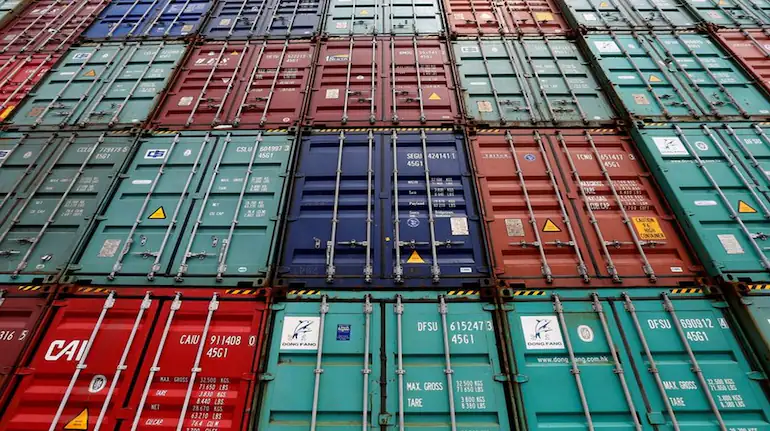Behind curbs on Bangladesh jute products: Dhaka proximity to Beijing, ignoring export malpractices

New Delhi – India’s decision to restrict imports of jute products from Bangladesh has sparked more than just trade concern. While New Delhi cites export malpractices—like under-invoicing and origin fraud—many believe there’s a deeper motive at play.
Dhaka’s growing relationship with Beijing has raised alarms in India. Analysts suggest that this jute import curb is also a subtle diplomatic signal to its neighbor.
What Prompted the Restrictions?
India and Bangladesh have shared strong trade ties, especially in the jute sector. Bangladesh exports jute bags, sacks, and yarn to India under the South Asian Free Trade Area (SAFTA) agreement.
Recently, Indian authorities flagged irregularities in these imports. Officials from the Directorate General of Foreign Trade (DGFT) claimed some shipments were under-invoiced or falsely labeled.
There were also suspicions that jute-like synthetic products from China were being routed through Bangladesh to evade duties.
Indian jute producers, mainly in West Bengal, raised concerns too. They accused Bangladeshi exporters of dumping low-cost goods, harming domestic mills. Several local mill owners urged the government to step in and protect local industry.
The China Angle
Beyond trade, India is also watching Bangladesh’s increasing closeness with China. Beijing has poured investments into major Bangladeshi infrastructure projects, such as the Padma Bridge and Karnaphuli Tunnel.
Bangladesh has also signed multiple defense deals with China. These include submarine purchases and military training support.
Indian officials privately admit their discomfort. They believe China could be using Bangladesh as a backdoor to flood Indian markets with synthetic alternatives to jute.
“China’s growing presence in Bangladesh is shaping our trade responses,” said a senior Indian diplomat. “We must safeguard both our economy and regional influence.”
Why the Jute Industry Matters in India
Jute is a critical sector in India, especially in eastern states like West Bengal, Bihar, and Assam. Millions of farmers and workers depend on it.
Indian mills often struggle with high input costs and outdated machinery. They cannot compete with Bangladesh’s cheaper exports.
Ahead of state elections in West Bengal, protecting the jute sector also holds political value. Supporting local jute producers could help the ruling party win favor with rural voters.
Bangladesh Responds with Concern
The Bangladeshi government expressed disappointment. Officials claim India’s move violates SAFTA rules and puts bilateral trust at risk.
The Bangladesh Jute Spinners Association (BJSA) urged India to lift the restrictions. They warned that thousands of workers may lose jobs if the export channel closes.
“We followed the trade rules,” said one exporter in Dhaka. “India’s decision hurts our economy and our farmers. It’s unfair.”
Dhaka plans to raise the issue at regional trade forums. Talks between the two governments are also expected.
Indian Importers Feel the Pinch
India’s packaging industry relies heavily on imported jute bags, especially for food grains and sugar. These imports are cheaper and often delivered faster than domestic supplies.
Several Indian traders now face shortages. “We can’t find enough jute sacks locally,” said a packaging company owner in Kolkata. “The curbs are disrupting supply chains.”
Industry bodies have urged the government to allow limited imports or streamline certification rules.
Trade Meets Diplomacy
India and Bangladesh have long maintained warm ties. But as Dhaka moves closer to Beijing, India seems to be adjusting its strategy.
Restricting jute imports sends a message: India is willing to protect its economic and geopolitical interests, even at the cost of short-term trade friction.
Experts view this move as a part of India’s broader regional recalibration. “It’s economic diplomacy in action,” said Dr. Meera Sinha, a South Asia expert. “Trade rules are now tools of strategic signaling.”
Can the Dispute Be Resolved?
Both countries benefit from strong trade cooperation. India is one of Bangladesh’s top export markets, and Bangladesh is India’s largest trading partner in South Asia.
Some suggest creating a verification system to ensure only genuine Bangladeshi jute products enter India. Others recommend third-party inspections to address origin fraud concerns.
Open dialogue and transparent processes could prevent this trade dispute from escalating into a diplomatic row.
What Lies Ahead?
The jute restrictions have broader implications. They highlight how trade is no longer just about economics—it’s about trust, influence, and security.
For India, maintaining regional leadership means keeping a close watch on China’s moves. For Bangladesh, balancing ties between two giants requires caution and clarity.
If both nations engage in honest dialogue, they can resolve this issue without damaging long-standing ties.
But for now, a humble fiber like jute has become a symbol of rising strategic competition in South Asia.






